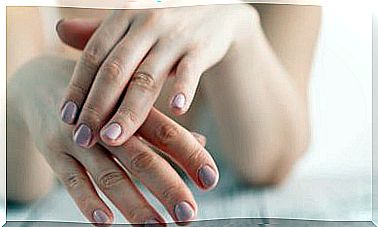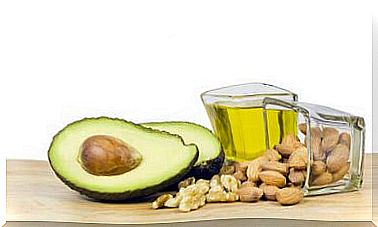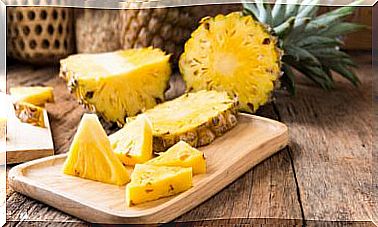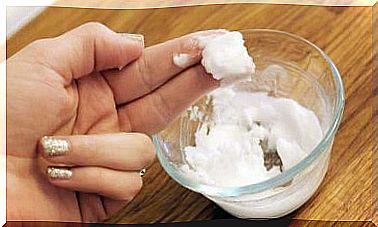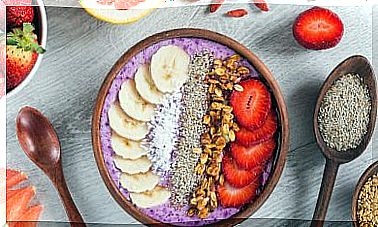7 Muscle Relaxants That Nature Gives You
Muscle relaxants of natural origin are ideal for those ailments that arise from physical overexertion, too much exercise or poor movement. What should you know about it? Here we detail it.

Muscle relaxants are drugs used to combat muscle tension, spasms, and other common ailments that often affect range of motion in areas such as the back, neck, hips, and so on. What are natural muscle relaxants?
There are a wide variety of ingredients of natural origin that provide an effect similar to that of conventional muscle relaxers. However, they are not a substitute for medications and their effect tends to be more moderate. Let’s see in detail 7 options that you can try.
7 naturally derived muscle relaxants
Muscle ailments can have their origin in an injury, a muscular overexertion, diseases, among other factors. Due to this, once they are perceived, one must be attentive to their level of severity and other associated symptoms. If necessary, it is important to consult the doctor to receive a more accurate diagnosis and, based on this, a treatment.
Muscle relaxants of natural origin can be used as an adjunct for pain relief when there are no serious causes. That is, they are ideal for pain caused by exercise, poor movement or too much physical effort. Do you dare to try them?
1. Peppermint oil
Peppermint oil is one of the natural products that can help us relax muscles in cases of stiffness and tension. According to information in the International Journal of Molecular Sciences , topical application of this oil can contribute to pain relief.
It has anti-inflammatory and analgesic properties that decrease pain and swelling, at least temporarily.
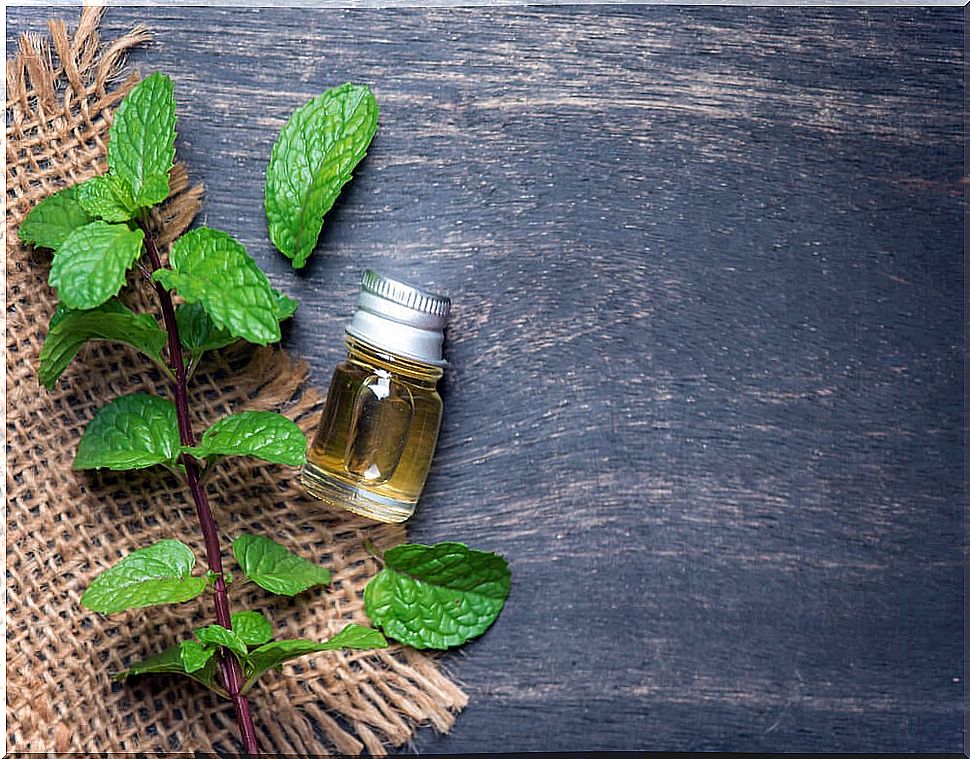
Ingredients
- 10 drops of peppermint essential oil.
- 2 tablespoons of coconut oil (40 g).
Instructions
- To start, combine the oils.
- Then, moisten the palms of your hands with a small amount of the product and rub it on the muscles you want to relax.
- Make sure to massage for at least five minutes to get good results.
2. Valerian
Thanks to its calming and anti-inflammatory effects, both valerian oil and infusion can be used to reduce muscle stress. Its consumption and direct application can help to relax the muscles, as pointed out by a study published in the Journal of Traditional and Complementary Medicine .
Ingredients
- 1 teaspoon of valerian (7 g).
- 1 cup of water (250 ml).
Instructions
- Pour the valerian into a cup of boiling water, and let it steep.
- When it is ready for consumption, pass it through a strainer.
- Consume a cup of infusion and rest.
Note : this plant can cause drowsiness.
3. Epsom salts
Epsom salt baths are ideal for relaxing tired muscles, thanks to their high levels of magnesium. As detailed in a publication in the National Center for Biotechnology Information , magnesium helps reduce hypersensitivity to pain and plays an important role in pain management.
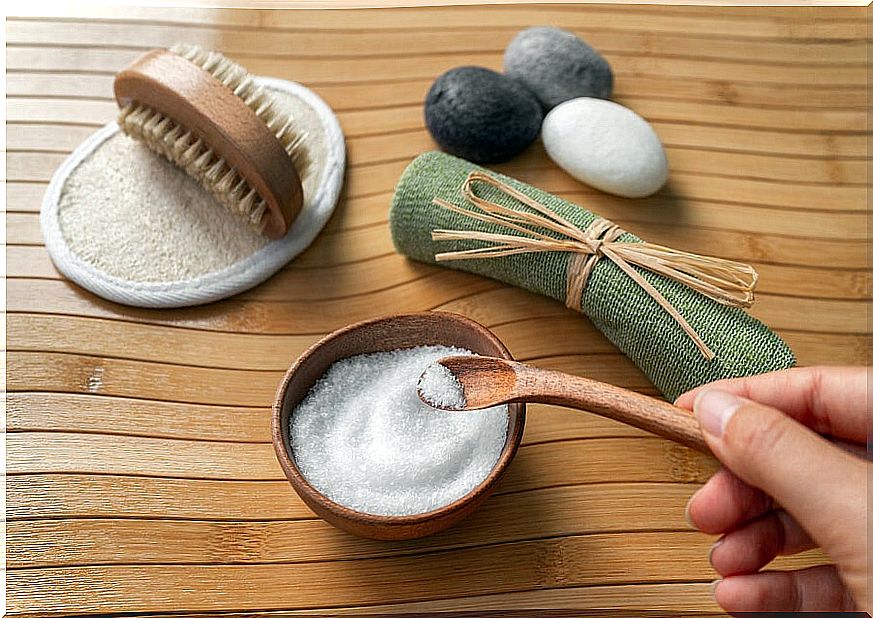
Ingredients
- 1/2 cup of Epsom salts (100 g).
Instructions
- Add half a cup of Epsom salts to the bath water and soak your body for twenty minutes.
- Try to carry out this therapy before sleeping to guarantee your rest.
4. Chamomile
Known in natural medicine for its digestive and emollient properties, chamomile is a natural supplement that reduces pain and muscle swelling.
According to research published in Molecular Medicine Reports , it has antispasmodic and anti-inflammatory properties that help muscles relax, especially when stressed by stress. For this reason, it is considered a good muscle relaxant.
Ingredients
- 1 tablespoon of dried chamomile (15 g).
- 1 cup of water (250 ml).
Instructions
- Prepare a cup of chamomile tea, adding the dried plant to hot water.
- Drink the drink 2 or 3 times a day.
- Also, optionally, apply it as compresses to areas of pain.
5. Arnica oil
Arnica contains a chemical compound known as thymol that, due to its anti-inflammatory action, could contribute to the relief of muscle pain. However, to date its effectiveness as a muscle relaxant has not been proven.
In any case, according to anecdotal data, a massage with its oil creates a pleasant sensation of heat that reduces tension.

Ingredients
- 1 teaspoon of arnica oil (10 ml)
- 2 tablespoons of coconut oil (40 ml)
How to use it?
- Put several drops of arnica oil on stiff muscles and massage for five minutes.
- Repeat it twice a day if you consider it necessary.
6. Cayenne pepper
Although its pungent taste can be unbearable for some people, cayenne pepper can serve as an adjunct against ailments that affect the muscles.
It contains an active substance called capsaicin, which gives it anti-inflammatory and analgesic effects, according to a study published in Pain and Therapy .
Instructions
- Add small amounts of cayenne pepper to your smoothies and infusions.
- Get cayenne pepper oil and use it to massage tired muscles.
7. Passionflower
Passionflower is a well-known plant in natural medicine, not only because it helps control nerves, but also because it acts as an anti-inflammatory and muscle relaxant.
According to a study published in the Journal of ethnopharmacology, it contains phytosterols and flavonoids, two substances with antioxidant effects that reduce oxidative stress. In addition, it also helps fight insomnia, a frequent problem among those who suffer from muscle pain.
Ingredients
- 1 teaspoon of passionflower (10 g).
- 1 cup of water (250 ml).
Instructions
- Pour the teaspoon of passionflower into a cup of boiling water, and let it steep for 10 minutes.
- Consume it before going to rest.
- Optionally, dip an absorbent cloth into the hot infusion and apply it as compresses to painful areas.
Muscle relaxants for mild pain
The aforementioned remedies are useful as muscle relaxants for mild ailments. However, it is essential to keep in mind that they are not a cure for pain and evidence on their safety and efficacy is lacking. Therefore, if the pain is severe or persistent, it is better to go to the doctor.

